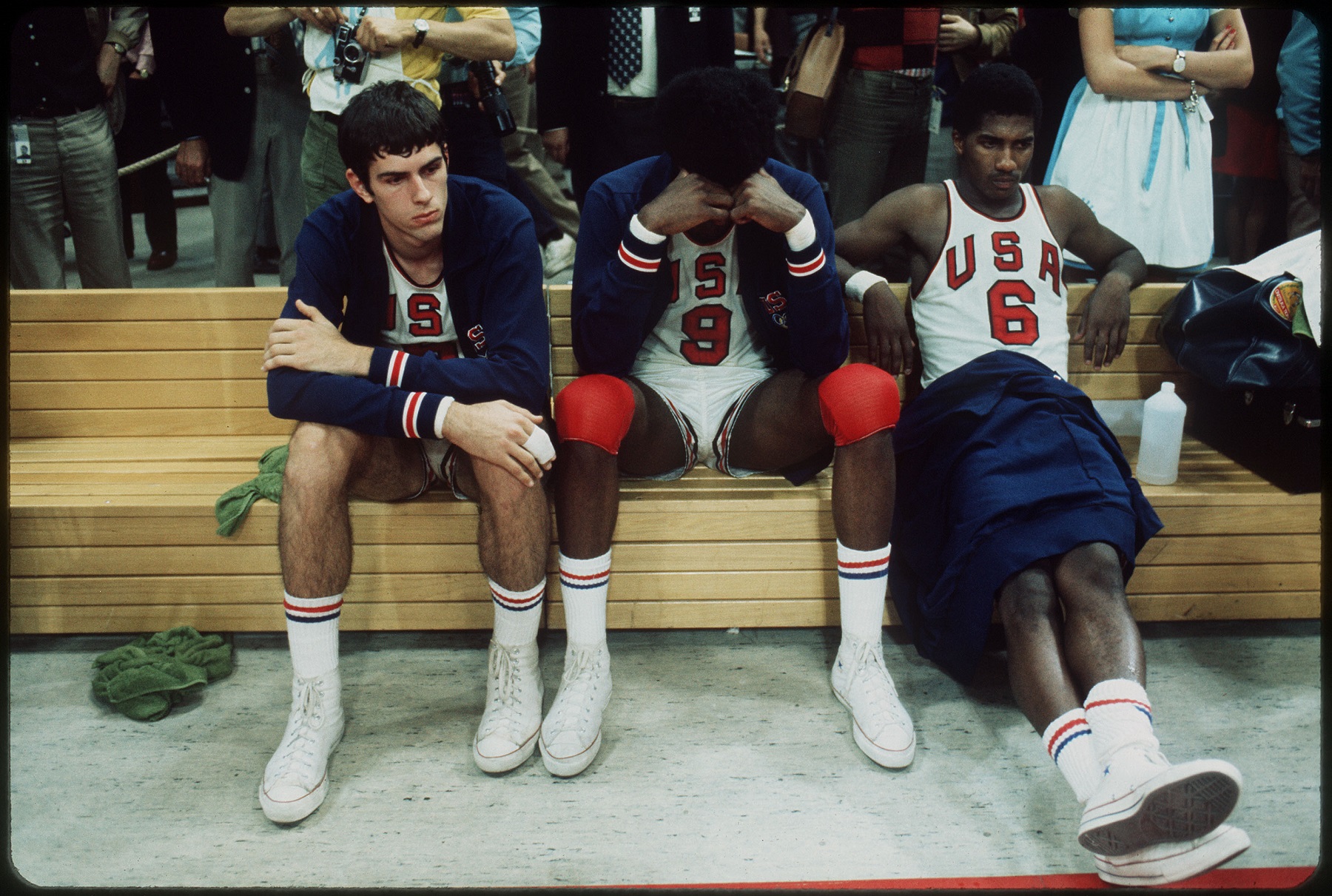Sports
The Longest-Running U.S. Basketball Boycott Began at the 1972 Munich Olympics

Dramatic developments in the NBA knocked the Republic National Convention, two hurricanes in the Gulf of Mexico, and renewed speculation about the health of North Korean dictator Kim Jong Un out of the headlines. But a player rebellion leading to the postponement of three NBA playoff games on Aug. 26 is still no match for the longest-running basketball boycott, one that began at the 1972 Munich Olympics.
The United States was outmatched and outcoached
RELATED: A Boycott Cost Isiah Thomas His First Potential Olympic Games
The ending of the men’s basketball gold-medal game at the 1972 Munich Olympics remains controversial to this day. The team from the former Soviet Union defeated the United States, 51-50. The loss was the first in tournament history for the Americans.
However, the signs of trouble were already apparent long ahead of time. The United States lost three games in a row to conclude the 1970 FIBA World Championships in Yugoslavia and finished in fifth place. At the Pan American Games the following year in Columbia, the United States lost a group game and missed the medal round after Cuba and Brazil seemingly manipulated the score of their game to allow both to advance on point differential.
The problem was that the United States was sending college players to major tournaments after practicing together for only a few weeks. Even in an era of purported amateurism in the Olympics, competitors were using de facto pros. Players on the Soviet Union team sent to Munich had been together for literally hundreds of games.
The second and more troubling problem for the United States was that Hank Iba was outcoached at the 1972 Munich Olympics. The Soviets succeeded in slowing the pace of the game and turning it into a bruising, physical battle. The Americans averaged 77.4 points a game during the preliminaries and beat Italy in the semifinals, 68-38. They would score just 50 points in losing the championship game on Sept. 9, 1972.
Three seconds played over and over
RELATED: The Tragic Death of Richard Jewell, a Suspect in Atlanta’s ’96 Olympic Games Bombing
The Soviet Union led by a 26-21 margin at the half and by four midway through the second half when a battle for a loose ball led to the ejection of Dwight Jones and Dvorni Edeshko. The U.S. came out on the short end because Jones was the team’s leading scorer and rebounder. Moments later, Jim Brewer went down hard, resulting in a concussion.
Doug Collins made a steal with 10 seconds to play. Followig a hard foul, he made two free throws with :03 showing on the clock and suddenly the United States led 50-49. And that’s where matters became murky.
Unable under the rules to call a timeout after the second free throw, the Soviets protested vehemently that their request for a timeout after the first free throw had gone unheeded. They inbounded the ball and again tried to signal a timeout with :01 appearing on the clock. The Bulgarian referee did not allow the timeout but did stop play because Soviet players had spilled onto the court trying to get the officials’ attention.
The Soviets then inbounded the ball for the second time, and the long pass down the court after a shorter pass was batted harmlessly off the backboard. The buzzer sounded, seemingly ending the game. Inexplicably, a FIBA administrator rushed from the stands to overrule the officials, granting the Soviets a timeout and resetting the clock to :03.
This time, Ivan Edeshko threw long to Alexsandr Belov, who caught the ball over two players, turned to the hoop and scored uncontested over the two fallen defenders for a 51-50 victory in an arena that had turned completely chaotic.
The U.S. team boycotted the Munich Olympics medal ceremony
RELATED: The 2004 Men’s Olympic Basketball Team Was a Problem Waiting to Happen
The United States attempted to protest the result of the gold-medal game at the 1972 Munich Olympics on multiple grounds, but the FIBA Jury of Appeals let the result stand by a 3-2 margin the following day. Representatives of three communist bloc countries voted against the Americans.
Upon hearing the result of the appeal, the American players met. Several of them, including Doug Collins, Jim Brewer, future congressman Tom McMillen, Tommy Burleson, and Tom Henderson, would go on to successful NBA careers. But nothing was more important to them at the time than coming home with the gold medal they believed that they had earned.
The sentiment of the locker room was unanimous. The Americans boycotted the medal ceremony on Monday, two days after the controversial finish to the championship game. With no one there to accept the medals, they were returned to International Olympic Committee offices in Switzerland, where they remain to this day.
Representatives of the IOC have approached the U.S. Olympic Committee periodically over the years to see if there might be a change of heart about accepting the silvers medals. But the American players have voted each time to refuse.











